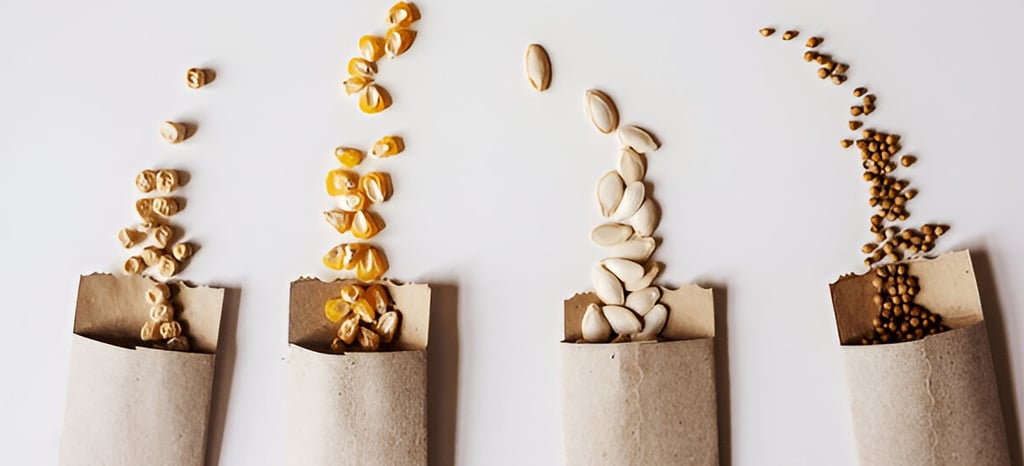Save Seeds, Save the Future
Native Seeds, Native Strength—Let’s Keep Them Alive
Mr. Anand Lakshmanan, EGF India
7/31/20252 min read


Seeds are tiny packets of life. From a single seed, a tree, a plant, or a field of crops can grow. Seeds have the power to feed people, support wildlife, and help life continue.
But today, many traditional seeds are disappearing. This is because of industrial farming, hybrid seeds, genetically modified crops, and rapid urbanization. As these natural seeds vanish, we lose plant diversity, food choices, and the ability to grow crops suited to our local climate.
Saving seeds is more than just a gardening habit. It is a way to protect the environment, our food, and the future.
Why Are Seeds Important?
* Biodiversity: Different types of seeds mean different kinds of plants. Each variety adds to the richness of life. If we lose these seeds, we lose valuable traits like taste, color, nutrition, and resistance to diseases.
* Food Security: Traditional seeds are strong. They can handle changes in weather and pests better. They are key to growing food in hard times.
* Health: Crops from native seeds are often healthier. They are less dependent on chemicals and have better nutrition.
* Culture and Tradition: Seeds are part of our farming history. They carry the knowledge and practices of generations before us.
The Threat to Seeds
In recent decades, farmers have been pushed to use hybrid and genetically modified (GM) seeds. These may grow faster or give bigger harvests, but they have serious problems:
* They can’t be saved for replanting. Farmers have to buy them every year.
* They need chemical fertilizers and pesticides to grow well.
* They reduce the number of traditional varieties in use.
* They make farmers depend on big companies for seeds.
As a result, thousands of local seed types have disappeared. For example, India once had over 100,000 kinds of rice. Now, fewer than 10% are still grown.
If this continues, we may lose many more valuable seeds forever.
How Can We Save Seeds?
1. Save Seeds at Home
Don’t throw away seeds from vegetables like tomatoes, chilies, cucumbers, and beans. Wash, dry, and store them in paper envelopes or small jars. Label them for next season.
2. Join or Start a Seed Bank
Many communities have seed banks. These are places where local seeds are collected, stored, and shared. You can donate seeds or take some to grow.
3. Support Local Farmers
Buy food from farmers who grow traditional crops. This encourages them to keep using native seeds and traditional methods.
4. Teach Children
Show children how to grow plants from seeds. School gardens and nature clubs can help them understand where food comes from and why seeds matter.
5. Share Seeds with Others
Organize or attend seed swap events. Exchanging seeds with neighbors and friends helps protect rare varieties and builds community.
Benefits of Saving Seeds
* Helps protect nature and plant diversity
* Makes farmers and families more self-reliant
* Builds stronger crops that adapt to local weather
* Saves money over time
* Preserves ancient farming knowledge and cultural identity
Conclusion: A Seed Today, A Forest Tomorrow
Saving a seed may seem like a small action, but it has a powerful effect. One seed can grow into a plant, and that plant can produce hundreds of new seeds. This is nature’s cycle of abundance.
By saving seeds, we help protect our planet, keep our food systems strong, and pass on a living gift to future generations.
"When you save a seed, you save life. You save tradition. You save the future."
Let’s work together to honor and protect our seeds—for ourselves, our children, and the Earth.
